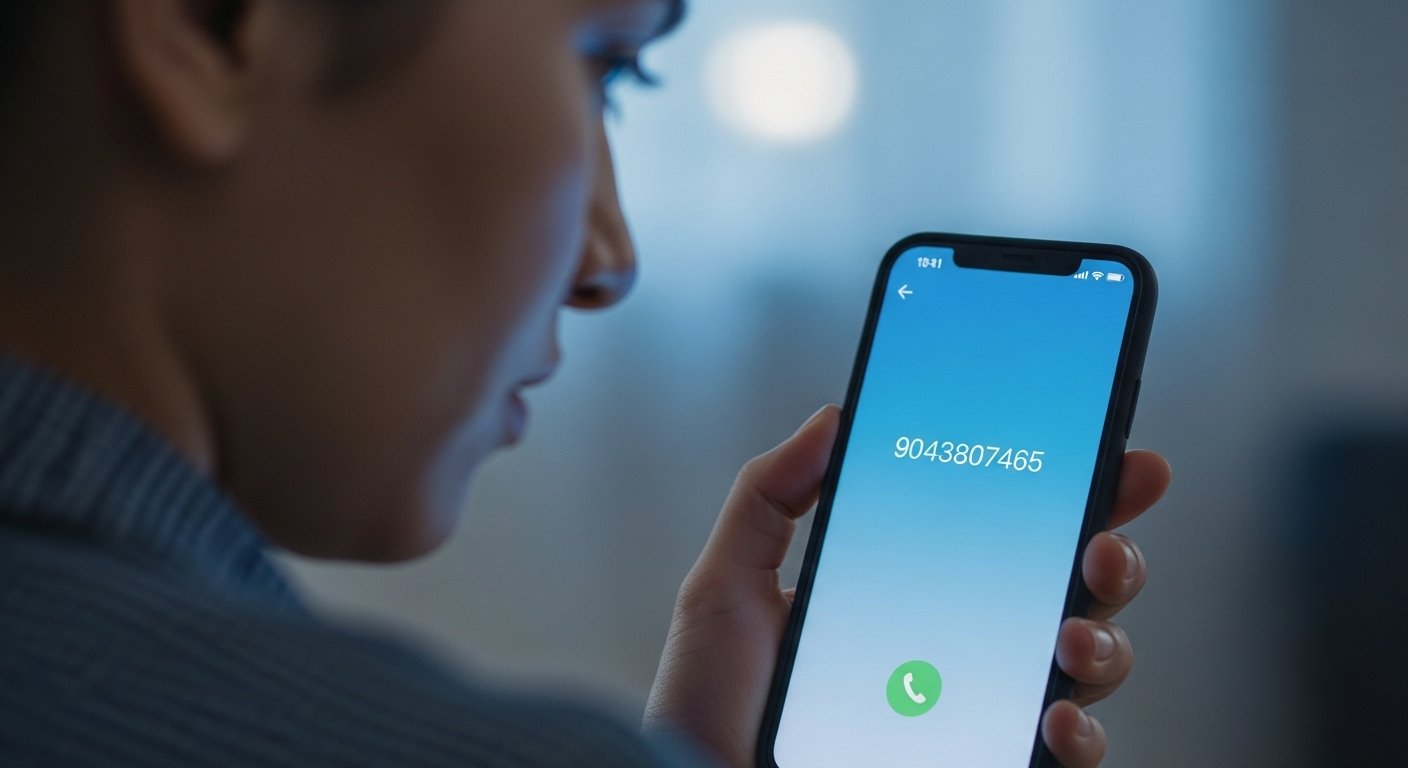In today’s world, our phones never stop ringing. From delivery updates to real customer support calls, it can be hard to tell which ones are real and which are scams. If you’ve recently received a call from 9043807465, you’re not alone — hundreds of people have reported getting the same call, and most are wondering the same thing: Is it safe to answer?
Let’s dive deep into what’s known about this number, why it might be calling you, and how you can stay protected from phone scams.
Why You Might Be Getting a Call from 9043807465
There are several reasons why a number like 9043807465 could show up on your phone screen. Some are harmless, but others could be attempts to trick you. Here are the most common possibilities:
1. Telemarketing or Promotional Calls
Many users report this number being used for marketing or product promotions. These calls are often made using auto-dialers — computer systems that ring thousands of numbers a day.
While some might be legitimate companies offering discounts or deals, others could be aggressive sales tactics or data-collection attempts.
2. Fake Customer Support Calls
A more worrying trend involves fake customer support representatives. Scammers often pretend to be from well-known companies — like banks, courier services, or tech firms — to gain your trust.
If someone from 9043807465 claimed they were from your bank or an e-commerce platform, hang up immediately and verify through the official number found on the company’s website.
3. Phishing Attempts
Phishing scams don’t just happen through emails — phone calls are a common weapon too. In these scams, the caller might ask for personal details such as:
-
Your full name
-
Account or card number
-
OTP or verification code
-
Password or PIN
No genuine company will ever ask for these details over a call. If you’ve been asked for such information by 9043807465, it’s almost certainly a scam.
What People Are Reporting About 9043807465
Online discussions suggest that many users have received repeated calls from this number, often with:
-
No voicemail left afterward
-
Silence on the other end when answered
-
Claims to be from a “customer service” or “verification” department
This pattern matches what’s commonly seen with scam or spam numbers. Fraudsters frequently use fake scripts and generic business names to sound official.
If you’ve experienced something similar, you’re definitely not the only one. The best step is to block the number and report it to your mobile service provider.
How Scammers Use Numbers Like 9043807465
Scammers today use a mix of tricks and technologies to make their calls seem legitimate. Here’s how they usually operate:
1. Caller ID Spoofing
They might use software to mask their real identity. This means that 9043807465 could even appear as a local or familiar number, making you more likely to pick up.
2. Urgent Language and Pressure
Scammers often try to make you panic — saying things like:
-
“Your account will be locked in 30 minutes.”
-
“Your payment failed. Please verify your details now.”
-
“You’ve won a prize! Confirm your details to claim it.”
This urgency is designed to make you act quickly without thinking.
3. Data Harvesting
Even if you don’t share financial information, scammers might record your voice or gather basic data (like your name and location) to use later in more advanced scams.
How to Stay Safe from Calls Like 9043807465
Protecting yourself from spam or scam calls isn’t difficult — it just requires a bit of awareness. Here are some easy but effective safety tips:
1. Don’t Share Personal Information
If someone claims to be from your bank, courier company, or any official service, always hang up and call the company directly through their verified customer service number.
2. Block and Report the Number
Most smartphones now allow you to block numbers easily. Once you block 9043807465, you won’t get any more calls or messages from it.
You can also report it to:
-
Your mobile carrier (they often have a spam reporting system)
-
Local cybercrime helplines or consumer protection agencies
3. Use a Call Filter App
There are several trusted apps like Truecaller that can identify spam numbers before you even answer. These apps use community reports to flag suspicious calls automatically.
4. Never Click on Links Sent via SMS
Some scammers might send you a text after calling, saying something like “Your parcel is delayed, click here to confirm delivery.” Don’t click such links — they often lead to phishing sites or malware downloads.
5. Educate Family and Friends
Elderly people and teenagers are often the most common victims of such scams. Share what you’ve learned with them so they can recognize suspicious calls too.
What to Do If You Already Answered the Call
If you’ve already picked up a call from 9043807465, don’t panic. Here’s what you can do:
-
Do not share any personal or financial details.
-
Hang up immediately if the caller pressures you or sounds suspicious.
-
Check your accounts for unusual activity — especially bank accounts or online wallets.
-
Change your passwords if you think you might have shared anything sensitive.
-
Report the call to your mobile network provider or local authorities.
It’s always better to act quickly — scammers often move fast once they get hold of your data.
Why These Scams Are Increasing
Scam calls like those from 9043807465 are becoming more common for a few key reasons:
-
Automation: Call bots can now dial thousands of numbers per minute.
-
Cheap technology: Spoofing software and VoIP tools are easy to get.
-
Data leaks: With so much personal data available online, scammers can personalize their calls better than ever.
Unfortunately, it’s almost impossible to stop these scams completely. But by staying alert and informed, you can avoid becoming a victim.
Final Thoughts
Getting a call from 9043807465 might seem harmless at first, but in most cases, it’s best not to engage. Whether it’s telemarketing or a full-fledged phishing attempt, you’re better off ignoring and blocking the number.
Remember — no real company will ever rush you or ask for private information over the phone. When in doubt, always verify independently. Staying calm, cautious, and informed is your best defense against phone scams in today’s digital world.
FAQs
1. What should I do if I accidentally shared information with 9043807465?
Immediately contact your bank or service provider and explain the situation. Change your passwords and monitor your accounts for unusual transactions.
2. Is 9043807465 a verified customer support number?
No, there’s no verified record of this number belonging to any official company or organization. It’s best treated as a suspicious or spam number.
3. How can I permanently avoid such scam calls?
Use call-blocking features, install trusted spam filters like Truecaller, and avoid sharing your number on random websites or forms online.

